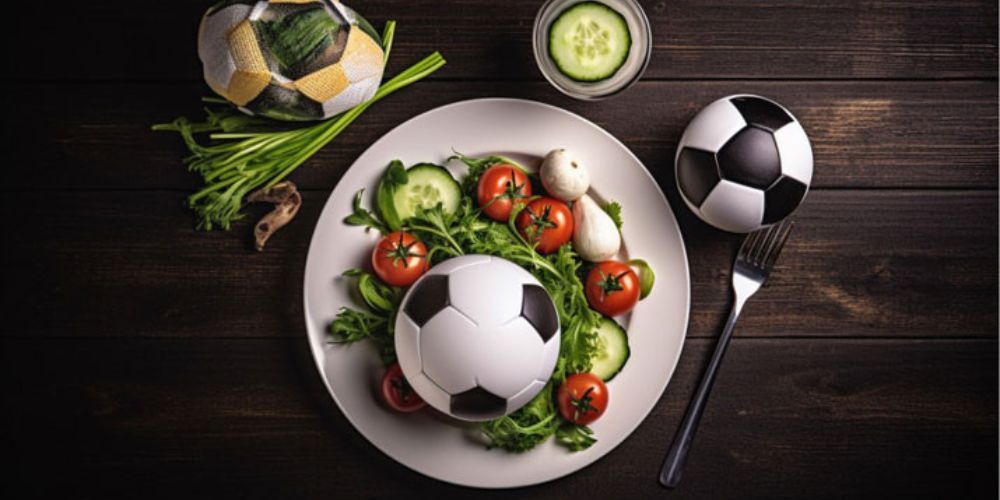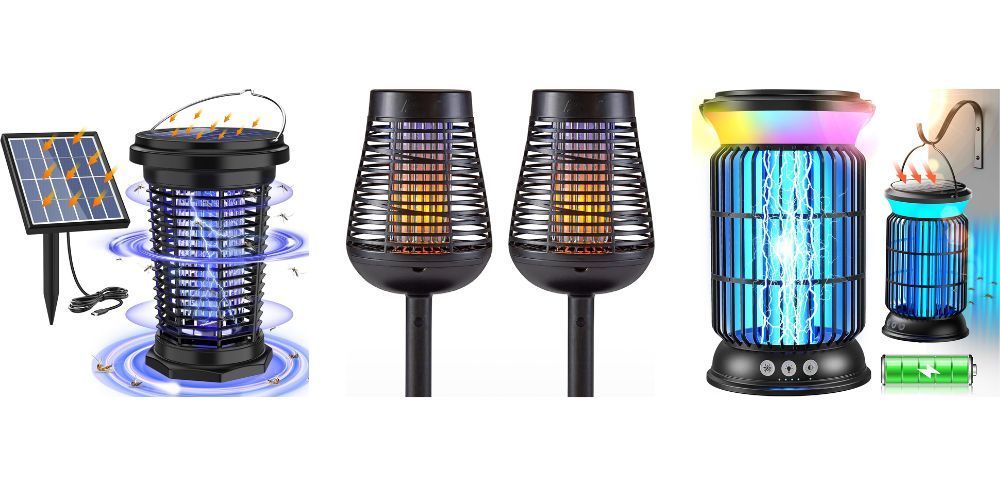The Role of Nutrition in Soccer Performance: Fueling Athletes for Success
August 25, 2024
It's easy to overlook nutrition when aiming for peak soccer performance, yet it's as critical as any training routine or piece of gear. Think about Lionel Messi—his carefully planned meals are as crucial to his success as his footwork or game strategies. Nutrition fuels every sprint, shot, and crucial decision on the pitch.
Research shows tailored diets significantly enhance endurance, speed, and focus in soccer players. Investing time in understanding these nutritional needs is valuable and necessary to avoid misleading advice. Imagine what happens when you adjust your intake; stamina improves visibly, recovery times shorten—I've witnessed it firsthand during a rigorous season. What surprises many is that proper nutrition boosts not only physical prowess but also mental resilience, enhancing overall game dynamics in unexpected ways.
The role of nutrition in soccer performance is crucial, as it directly influences an athlete's preparation, stamina, recovery, and overall competitive edge. Adequate intake of carbohydrates for sustained energy, lean proteins for muscle repair and development, and personalized hydration strategies are essential components for optimizing soccer performance. Additionally, periodizing nutritional plans to match the demands of training and competition phases can significantly enhance a player's physical and cognitive capabilities on the field.

The Importance of Nutrition in Soccer Performance
When considering fueling the body, one might primarily think of eating before exercise or games. But let's reframe this: Would you expect your car to run on fumes? Most likely not. The same principle applies to our bodies.
Proper nutrition isn't just about eating enough; it's also about consuming the right kinds of food that provide the energy needed for endurance, speed, agility, and explosive movements—the very things that soccer demands. Carbohydrates are like the gas that powers the engine. They're essential for athletes because they help maintain energy levels throughout a match and delay fatigue. Fruits, vegetables, legumes, and whole grains are excellent sources of carbohydrates that help players perform at their best.
But it's not just about energy; protein is just as important. It's like the building blocks of the body - repairing muscles after a grueling game, preventing injuries, and supporting immune function. Lean meats, fish, dairy products—these are the kind of foods that help fortify those building blocks.
Consider this: Just like a well-tuned instrument can make beautiful music, a well-structured diet can enhance a player's endurance, speed, and mental focus. Studies have shown that athletes on clean diets experience improved muscle function, reduced inflammation, decreased recovery time—all crucial elements for players who train intensively and frequently.
Moreover, let's not forget hydration. It's easy to overlook but so important! Proper hydration ensures optimal physical and mental function during a game—keeping players sharp and focused.
In essence, proper nutrition isn't just about what you eat before a game—it's about providing your body with the best possible resources it needs to function at its best during training, competition, and recovery.
As we zero in on the specific nutrients vital for soccer players' performance, we begin to understand how each component fuels their success on the field.
Essential Nutrients for Soccer Players
Nutrition isn't just about eating—it's about fueling your body with the right stuff so you can perform at your best. For soccer players, getting the right mix of nutrients is crucial. Let's start with carbohydrates.
Carbohydrates
Carbs are like rocket fuel for your body. They're what give you energy to run, jump, and keep going—perfect for high-intensity exercises like soccer games. But not all carbs are created equal. Whole grains like oats and brown rice, and fruits and vegetables are where you want to get your carbs from—the complex kind. These types of carbs keep your energy levels steady throughout a game or practice, so you’re not running out of steam halfway through.
Proteins
Proteins are like the builders of your body. They help repair muscles after intense workouts and keep them growing strong. Every time you sprint or make a pass, your muscles get tiny tears that need fixing, and that's where proteins come in. Lean meats like chicken and turkey, fish, dairy products, and legumes are full of proteins and should be a big part of a soccer player’s diet.
Fats
Healthy fats are another important part of a soccer player's diet. They give you long-term energy so you don’t run out of steam too quickly, just like carbohydrates do. But they also help with things like growth and overall cell function in your body, which are pretty important too. Look for healthy fats in foods like avocados, nuts, and olive oil.
Vitamins and Minerals
Micronutrients like vitamins and minerals might be small, but they pack a big punch when it comes to keeping your body running smoothly. Here are some heavy hitters: Iron is super important because it helps carry oxygen to your muscles so they can keep working hard; Calcium keeps your bones strong, which is important for hard tackles on the field; and Vitamin D plays an important role in maintaining a healthy immune system, allowing players to withstand intense physical stress without succumbing to illness.
If there's one thing to take away from this, it's that each of these essential nutrients plays a crucial role in helping soccer players perform at their best on the field, supporting everything from energy levels to muscle repair and overall health.
Understanding the significance of these essential nutrients paves the way for optimizing their intake - leading us to explore the critical timing of nutrient intake in the context of soccer performance.
Timing of Nutrient Intake
In the world of soccer, the timing of nutrient intake plays a crucial role in fueling athletes for success. It's not just about what you eat, but also about when you eat it. The strategic consumption of energy, macronutrients, fluids, and micronutrients before, during, and after exercise is known as nutrient timing. This approach is designed to optimize performance, enhance adaptations to exercise, and accelerate recovery.
The period leading up to a match requires careful attention to detail. Consuming a high-carb meal 4-5 hours beforehand can help optimize glycogen stores. Foods such as whole grain pasta with vegetables or a quinoa salad with lean chicken serve as exemplary meal choices during this time frame.
During the Match
When the game is in full swing, athletes need easily digestible carbs to maintain their energy levels and focus. Bananas or sports drinks can be immensely beneficial during intense matches, providing a quick source of readily available energy.
After a game, the body enters a crucial recovery phase. Replenishing glycogen stores and aiding muscle recovery within 30 minutes post-match is essential. This can be accomplished by consuming a combination of protein and carbs, such as a smoothie with whey protein and berries or a chicken sandwich on whole-grain bread.
"The primary goal of peri-workout nutrition is to provide nutritional support to allow the athlete to stay injury-free while maximizing performance and functional and metabolic adaptations."
Preparing for optimum performance extends beyond nutrient intake; maintaining proper hydration and electrolyte balance is paramount in ensuring peak physical condition on the soccer field.
Hydration and Electrolyte Balance in Soccer
Picture this: you're out on the soccer field, the sun beating down, and you can feel the sweat trickling down your forehead. Hydration is crucial for athletes, especially soccer players who spend a significant amount of time running and sprinting on the field. Dehydration can lead to decreased performance, increased fatigue, and even contribute to a higher risk of injuries.
Sweat rates can vary from person to person, so it's important for soccer players to be aware of their individual sweat rates. This awareness enables them to adjust their fluid intake to match their specific needs. Factors like temperature, humidity, and intensity of exercise all play a role in how much an individual sweats. By tracking their sweat loss during training sessions and matches, players can develop personalized hydration plans that optimize their performance and reduce the risk of dehydration-related issues.
Imagine playing a game in hot and humid conditions without replenishing the fluids lost through sweating. Not only would your energy levels plummet, but your ability to perform at your peak would significantly drop due to dehydration. This underlines the critical importance of adequate hydration for soccer players.
In addition to water, electrolytes also play a vital role in maintaining fluid balance in the body. When athletes sweat, they lose not only water but also essential salts such as sodium, potassium, and chloride. These electrolytes are crucial for various bodily functions including muscle contractions and nerve signaling. To maintain optimal performance, soccer players should consider beverages that contain electrolytes to help replace the salts lost through sweating.
Research has shown that even a 2% loss in body weight due to dehydration can lead to a decline in physical performance. In a sport as physically demanding as soccer, this decline could have a significant impact on an athlete's ability to run, jump, and make split-second decisions on the field. It's clear that maintaining proper hydration and electrolyte balance is not just about comfort; it directly affects an athlete's ability to perform at their best.
With heat stress being a common challenge in soccer, understanding how to effectively hydrate and replenish electrolytes is imperative for players striving to maintain peak performance on the field.

Achieving a Balanced Diet for Soccer Athletes
When it comes to achieving a balanced diet, it's not just about eating a variety of foods—it's about fueling your body with the right combination of nutrients. For soccer players, this is especially vital given the high physical demands of the sport.
First and foremost, the perfect meal for a soccer player includes the appropriate balance of macronutrients, namely carbohydrates, proteins, and fats. The consistent physical activity involved in playing soccer necessitates ample energy stores, primarily derived from healthy carbohydrate sources such as whole grains, fruits, vegetables, and legumes in each meal to provide the necessary fuel for training and matches.
Simultaneously, protein is fundamental for muscle repair and growth, critical for recovery after intense physical activity. Incorporating lean sources of protein such as chicken breast, turkey, fish, tofu, and legumes aids in repairing muscles after strenuous practice or game.
Additionally, healthy fats are essential for optimal brain function and overall health. Emphasizing healthy fats like avocados, nuts, seeds, and olive oil contributes to improved cognitive function and provides sustained energy throughout the day.
Another often overlooked factor is micronutrients—vitamins and minerals that play key roles in various bodily functions. Incorporating a colorful array of fruits and vegetables enables athletes to receive a diverse range of micronutrients necessary for overall health and performance.
To maintain this balance consistently, meal prepping can be extremely helpful. Planning nutritious meals in advance ensures they are readily available during busy training seasons or competitions, allowing soccer players to meet their dietary needs without sacrificing convenience.
Moreover, nutritional periodization presents an effective approach to aligning dietary intake with training and match schedules to maximize performance and recovery throughout the season. This entails adjusting food choices based on the intensity of physical activity to match energy intake with energy expenditure at different stages of the season.
In conclusion, achieving a balanced diet tailored to individual needs involves strategically incorporating a mix of macronutrients and micronutrients through meal prepping and planning while also considering nutritional periodization to optimize performance and recovery.
Understanding the critical role of nutrition in soccer performance sets the stage for exploring specific natural foods that can serve as power-packed fuel for athletes.

Best Natural Foods for Soccer Performance
When it comes to fueling your body for intense physical activity like playing soccer, the quality of the food is just as important as the quantity. Opting for nutrient-dense foods that provide sustained energy and support muscle recovery can make a remarkable difference in an athlete's stamina and performance on the field.
Nutrient Powerhouses
- Sweet Potatoes: A fantastic source of complex carbohydrates and fiber, providing a slow and steady release of energy, ideal for sustaining endurance during long matches.
- Greek Yogurt: An excellent post-training snack, with high protein content aiding in muscle recovery and repair, along with being loaded with calcium, crucial for maintaining strong bones.
- Berries: Offer an abundance of antioxidants, which assist in reducing inflammation and muscle soreness, supporting quicker recovery between matches and training sessions.
- Eggs: Exceptional source of high-quality protein and essential amino acids necessary for building and repairing muscles.
- Spinach: Loaded with iron aiding oxygen delivery throughout the body, ensuring that muscles have access to plenty of oxygen during strenuous play, with nitrates contributing to improved muscle efficiency.
- Quinoa: Renowned for being a complete protein source offering all nine essential amino acids required by the body and a generous dose of fiber for long-lasting energy.
As you can see, these natural foods aren't just about filling your stomach; they can actually make a substantial impact on your performance as a soccer athlete by supplying sustained energy, aiding muscle recovery, reducing inflammation, boosting oxygen delivery, and providing essential nutrients necessary for endurance and recovery.
Incorporating these nutrient-rich foods into a soccer player's diet can truly elevate their performance on the field. It's not just about what you eat but how it fuels your athletic prowess.
What are the best foods to eat before a soccer match?
The best pre-game meals are rich in carbohydrates and moderate in protein, with low fat and fiber content to avoid digestive discomfort. A good option could be a whole-grain pasta with a lean protein like chicken, along with some steamed vegetables. Carbohydrates provide the primary energy source for intense soccer activities, so eating about 3-4 hours before the match ensures that your body has time to digest and convert the food into energy. Additionally, a small snack like a banana or a granola bar 30 minutes to an hour before kickoff can help top off energy levels.
How does hydration impact soccer performance?
Hydration is crucial for maintaining optimal performance during a soccer match. Even slight dehydration can lead to a decline in energy levels, reduced endurance, and impaired cognitive function, which affects decision-making on the field. Athletes should aim to drink water throughout the day and consume about 17-20 ounces of water 2-3 hours before the game. During the match, players should aim to drink 7-10 ounces every 10-20 minutes. After the game, replenishing lost fluids with water or an electrolyte-rich drink is essential to aid recovery.
What role do proteins play in a soccer player’s diet?
Proteins are vital for muscle repair and recovery after intense physical activity, like soccer. While carbohydrates are the primary energy source, protein is essential for rebuilding and repairing muscle tissues that break down during a game. Soccer players should aim to include a protein-rich source in every meal and snack, such as lean meats, eggs, dairy products, or plant-based options like beans and lentils. After training or a match, consuming a protein-rich snack or meal within 30 minutes can significantly enhance muscle recovery and overall performance.
Check out the latest guides on soccer
Author: William Flaiz










